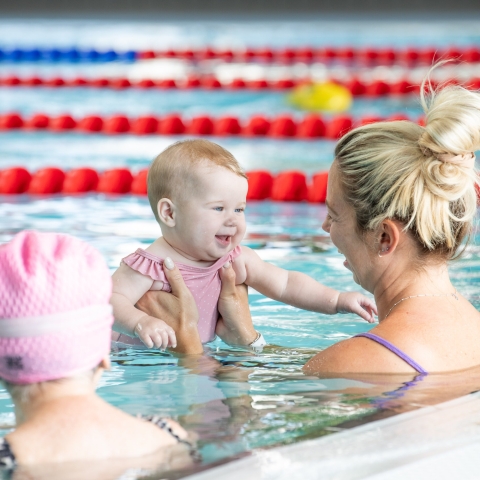

Quality of life, health and wellbeing research
Researching the psychology behind health and wellbeing
Quality of life and wellbeing can differ greatly from one person to the next.
An employee's experience at work can be vastly different from someone else's; a student with learning difficulties may or may not get the support they need; or the elderly might not get the right kind of care. We're exploring these diverse experiences, to enhance the quality of life and improve the wellbeing of ordinary people.
Our research aims to understand psychological and behavioural processes involved in health and wellbeing to produce practical solutions such as lifestyle changes.
For example, stress at work remains one of the most commonly-cited reasons for poor work-related quality of life and high staff absenteeism – and our work in this area is helping employers and employees to identify best practices.
Our expertise lies in assessing the behaviours, attitudes and beliefs of people, analysing this data, and comparing it to other groups. We produce reports describing the findings, and in many cases, offer expert advice on what should be done to address concerns or problems.
Our research covers the following topics
The Quality of Life, Health, and Wellbeing research group brings together research staff from the Department of Psychology, School of Sport, Health and Exercise Science, and School of Health and Care Professions.
Improving mental health and wellbeing
Our research can help us understand the causes of poor mental health and well-being, such as anxiety and depressive disorders, by studying biomarkers and psychological mechanisms.
We also investigate the impact of various therapies and interventions on improving mental health and well-being. Examples include animal-assisted therapy, shared reading, mediated communication, and social robots.
Managing chronic health conditions
Through our research, we aim to understand chronic pain and chronic wounds, including how they're measured, managed and their impact on quality of life – while also exploring the prediction and management of post-surgical pain.
From this, we can understand the experiences of patients with cancer and other long-term health conditions like Motor Neurone Disease and the effectiveness of psychological therapies related to these conditions.
Improving physical health behaviours
We study how people's actions affect their health, including how well they understand and follow public health guidelines, and how sensory experiences influence obesity and alcohol consumption. We also focus on creating and implementing effective interventions based on theories to change health behaviors related to non-communicable diseases like quitting smoking or making healthier dietary choices.
Enhancing quality of life in workplace environments
We aim to enhance the evaluation of workplace quality of life by studying the psychological effects, such as moral injury and distress – experienced by healthcare professionals during healthcare crises. We also investigate the advantages of placement years in graduate education and employability.
Take part in our research studies
We're always looking for volunteers to join our research study programmes.
If you're an adult interested in registering for a research study, please fill in the following form.
If you're interested in registering a child for a research study, please fill in the following form.
Explore our research
Find out more about the work we're doing across our research entities in Psychology.
School of Psychology, Sport and Health Sciences
Discover the School of Psychology, Sport and Health Sciences, where we're exploring health and exercise science, sport science, and the impact of psychology.

Autism Centre for Research on Employment
ACRE addresses the gap in provision for autistic adults in terms of employment and to facilitate job retention by developing tools to support employers.

Centre for interaction, development and diversity
In the Centre for Interaction, Development and Diversity, we study psychological phenomena in relation to the contexts and situations in which they emerge.

